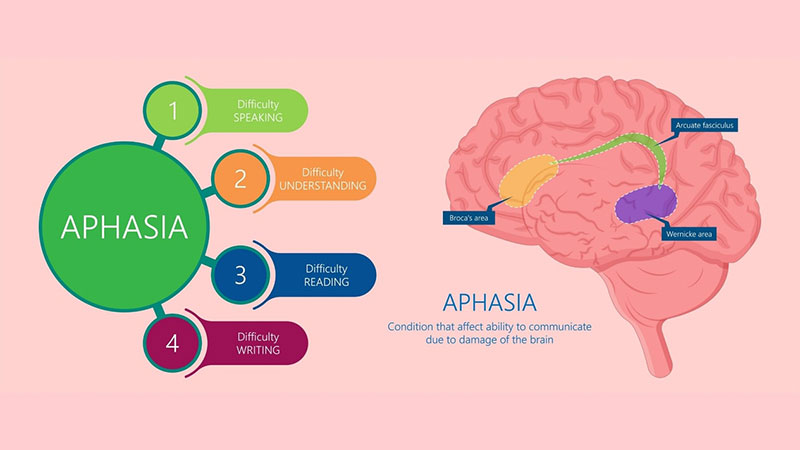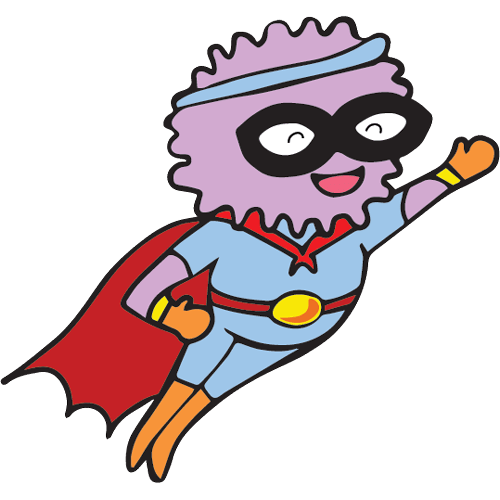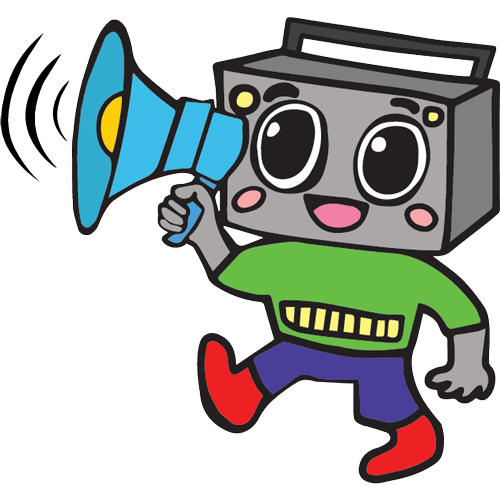Can You Recover from Aphasia?

Surviving a stroke has far-reaching impacts that can touch almost every facet of life. Depending on which areas of the brain were affected during the stroke, you may experience speech and language problems known as aphasia.
Aphasia is an acquired, neurological language disorder that can affect spoken language, comprehension of language, written expression, or reading comprehension. Since we use language in some form every day, aphasia can make it difficult to perform daily tasks such as interacting with family members, socializing with friends, or working a job. If you are struggling to carry out these activities with comfort and confidence, speech therapy can assist you or your loved one in recovery.
To get a better understanding of the aphasia recovery process, we enlisted the help of Dr. Jessica Galgano, executive director and founder of Open Lines Speech and Communication. Dr. Galgano outlined how to treat aphasia, what the recovery timeline looks like, and how family members can assist in this difficult journey.
Does Speech Return After a Stroke?
This is a common question for both individuals and their loved ones who suffer a stroke. While the location of damage in the brain, as well as the severity of trauma and types of symptoms that surface, are variables that affect recovery outcomes, research indicates that an intensive treatment program, combined with social support, positively impacts treatment outcomes.
These factors bolster the motivation, perseverance, and intensity of practice needed to see results in your individual program and fuel ongoing confidence and commitment when frustrations arise.
How close you can get to 100% in your recovery and treatment depends on many of the same factors listed above. In other words, it can be subjective.
That said, Dr. Galgano said many people living with aphasia return to work and live their lives successfully. “During your assessment with your speech-language pathologist, details about the skills and daily activities required to perform your job will be reviewed in detail,” she said. “Goals that target helping you become proficient in skills needed for return to work will be incorporated into your treatment plan and practiced during your sessions. Your SLP will help you retrain these skills and/or help you develop new strategies for performing these skills with confidence and proficiency.”
How Do You Treat Aphasia?
Because different parts of the brain are affected in different ways following a stroke, presentations of aphasia vary widely from person to person. As a result, your speech therapy treatment is highly individualized and takes into consideration the type of aphasia you have, which is determined by the location of brain injury and symptomology. While aphasia does not affect cognitive skills, such as attention, memory, and executive functioning skills, nor motor speech functions such as apraxia or dysarthria, difficulties in these areas of communication frequently co-occur and must be addressed in therapy.
“Treatment of aphasia has been studied extensively and is effective,” Dr. Galgano said. “The aim of therapy is to capitalize on an individual’s strengths to rebuild and retrain old skills, as well as learn new strategies for communication and modify environmental factors to optimize successful communication and participation in important life activities.”
Persons living with aphasia require different treatment techniques and treatment intensities because each has different patterns of language difficulties. However, all programs use core principles of neuroplasticity — the ability of neural networks in the brain to change by growing and reorganizing — and motor learning. Improving a current skill or rebuilding an old skill requires practice, repetition, and salience.
“Following an in-depth evaluation, your speech-language pathologist will determine which combination of drill-based exercises and functional activities will help improve your ability to understand, speak, read, and/or write,” Dr. Galgano said. “This can include exercises such as script training to increase automatic speech; sentence generation tasks to improve your vocabulary and word retrieval, or reading exercises to improve reading comprehension.”
You may also take part in functional activities, such as role-play conversations or performing tasks to help you regain your confidence with your professional and personal responsibilities.
In general, aphasia treatment programs require five to 10 hours per week of online therapy and five to 15 hours per week of in-person therapy. This schedule includes exercises, activities, relaxation, rest, and other recommendations important for your individualized program.
Aphasia Recovery Timeline
How an aphasia patient recovers from a stroke depends on many factors, including the nature and extent of the neurological injury, social support, and medical treatment received immediately following the traumatic brain event.
“So while every person makes individualized progress, support, motivation, perseverance, and intensity of practice are factors that most significantly affect how quickly you see results in your individual program,” Dr. Galgano said. “Other factors include your specific goals (for example, returning to life in retirement or regaining skills for the workplace as an attorney), the extent of your neurological injury, and your feelings or beliefs about your communication difficulties.”
In general, participating in an intensive post-stroke program with speech sessions four to five times a week for one or more hours each day combined with a home exercise program will generally lead to significant improvement in one month. You can then renew the program on a monthly basis until you meet and exceed your goals.

The Emotional Toll of Aphasia
Aphasia significantly affects the daily lives of survivors and their loved ones. Activities that were once performed thousands of times daily without effort, such as speaking, understanding what someone says, reading, and writing, may now require significant effort, modifications, and problem-solving.
Ramifications are felt throughout personal, social, vocational, and recreational aspects of life and can impact personal identity and self-concept, interpersonal relationships, autonomy, roles and responsibilities, and social access.
Sadly, many people living with aphasia experience decreased quality of life, including social isolation, loneliness, restrictive activities, loss of autonomy, and stigmatization due to impairments and limitations in their ability to communicate.
These factors can all impact a person’s emotional well-being as well as their motivation and perseverance to stick with an intensive treatment program.
Tips to Help a Loved One With Aphasia
Dr. Galgano provided several tips for family members who care for or interact with a loved one with aphasia.
First, she recommended making every effort to increase access to and opportunities for meaningful interactions.
“Social support plays a monumental role in a person with aphasia’s recovery and treatment outcomes! This point cannot be emphasized enough,” she said.
There are many strategies loved ones can use to increase a person with aphasia’s social participation.
Acknowledgment of Competence
People with aphasia often report that, due to their communication impairments, they are perceived as incompetent and are consequently denied opportunities to participate in important life events. This has a direct impact on psycho-social well-being. Therefore, acknowledgment of communicative competence is imperative.
You can acknowledge their competence by carrying out the following measures:
- Using humor, appropriate tone of voice, and making conversations sound normal and adult
- Acknowledging any frustrations the person with aphasia may be experiencing
- Explicitly attributing communication breakdowns to your own limitations as a communicator (use humor!)
- Verbally acknowledging the person with aphasia knows what they want to say
Reveal Competence
Ensure the person with aphasia can comprehend information by doing the following:
- Using short simple sentences
- Using gestures, written keywords, drawings, or other materials to ensure the topic of conversation is clearly understood
- Eliminating distractions (noises, too many visual stimuli, or other people)
- Asking one thing at a time
- Ensuring the person with aphasia can respond and/or express what they know, how they feel, or their opinion by:
- Ask them if they can give you clues by describing, showing, pointing, gesturing, etc.
- Asking yes or no questions
- Providing fixed choice questions
- Providing adequate time to respond
- Providing different avenues to respond (access to written responses or pictures)
Verify Responses
Make sure you have correctly understood the person with aphasia’s message by summarizing, reflecting, or expanding what has been communicated using writing, gestures, and images as needed.
Keep a Written Log
Keep a written log of conversations you can track and review. This is a handy way of notating what worked and what did not.
Aphasia Treatment at Open Lines®
At Open Lines®, our intensive aphasia treatment program begins with a one-on-one comprehensive communication skill evaluation followed by a series of highly structured program sessions. Each of the sessions is specifically tailored to your individual needs.
If you’re struggling with communication difficulties, it’s time to turn to Open Lines®. Contact us via phone (212-430-6800), email [email protected], or by filling out our convenient contact form. Improve your communication skills and unlock your potential with Open Lines® Speech and Communication in New York today!
Get in Touch With Open Lines®














